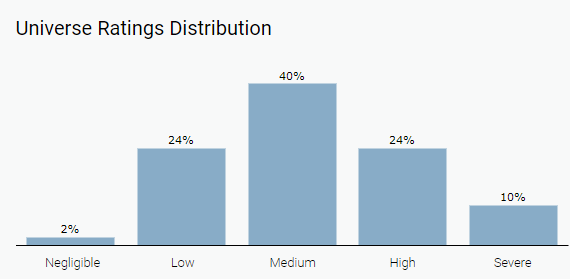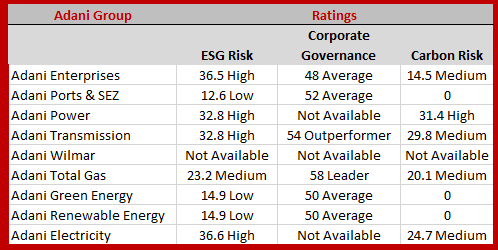Let’s look at how Sustainalytics, a global leader in Environmental, Social and Governance (ESG) research and ratings, assigns ESG Risk Ratings. On a spectrum of 0 to 40+, there are five levels of risk.
A company’s ESG Risk Ratings score is assigned to one of five ESG risk categories. The higher the score the higher the risk of material financial impacts driven by ESG factors. EV = Enterprise Value.
- Negligible Risk
Overall Score of 0-9.99 points
EV is considered to have a negligible risk of material financial impacts driven by ESG factors
- Low Risk
Overall Score of 10-19.99 points
EV is considered to have a low risk of material financial impacts driven by ESG factors
- Medium Risk
Overall Score of 20-29.99 points
EV is considered to have a medium risk of material financial impacts driven by ESG factors
- High Risk
Overall Score of 30-39.99 points
EV is considered to have a high risk of material financial impacts driven by ESG factors
- Severe Risk
Overall Score of 40 and higher points
EV is considered to have a severe risk of material financial impacts driven by ESG factors
Supported by a robust materiality framework, Sustainalytics' ESG Risk Ratings provide a quantitative measure of unmanaged ESG risk. The above ESG Risk Ratings measure a company’s exposure to industry-specific material ESG risks and how well a company is managing those risks.

How the Adani Group companies fare
